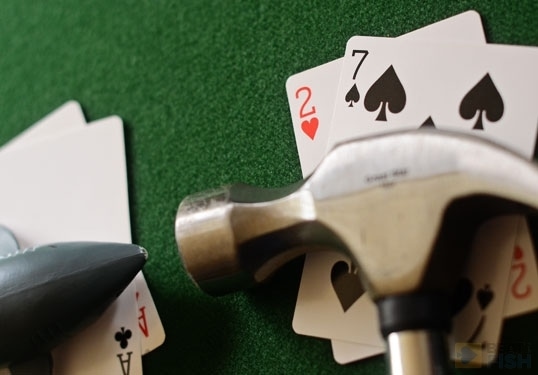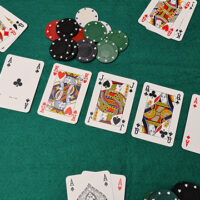How to Beat the Poker Bad Beats


For those with the right mindset and several advantages, becoming a poker player can be a highly profitable journey. Admittedly, anyone can learn the ins and outs of the game, but poker is a game that requires at least some natural impatience to thrive. With that said, how do you respond to bad beats?
Any time you put your opponent in a position to beat you, you take a chance of losing, so you want to avoid tough decisions. You want to limit your downside and maximize your potential for return in every hand. However, sometimes bad beats prove to be a blessing in disguise.
When you are maybe the poker player that always seems to get beat by a sucker card or some terrible blunder, it’s best to look inside and figure out what went wrong. In other words, use your poker calculator to keep tabs on your opponents. The best applications of your poker calculator are in tournament play because they can keep calculating in the sense that an opponent deserted and there are no more draws to worry about.
While you are involved in a hand, you’ll want to constantly pay attention to how your opponents play. Cover more bases with your poker calculator to make up for your monster hands that often get run down by superior hands.
Pay Extra Attention to Your Hand
As usual, your AK suited or your pocket, whatever is not the best hand by itself, but against the right opponent, it can be a powerhouse of a hand.
When you are in an early position and you have a hand, you should at least be giving it a 30% chance of winning before you commit. You should usually fold in this position if you have a weaker hand.
In a later position, you can play your hand more aggressively. Usually, your table image and the profiles of your opponents will help you decide what to do and how.
Let’s go over a few of the factors to keep in mind.
Your opponents are paying attention to you and are more likely to call if you have a strong hand, like a big hand like pocket Q’s, than if you have a weaker hand like 6 6.
You don’t want your opponents to think you are weak when you are in an early position, so you should bet out more often.
If you are in the middle position and a player a few tables ahead of you makes a call on the flop, a small raise probably won’t scare them off. You can see a flop for free or bet at the pot if it’s free.
Cliffs
It’s very important to understand that pocket aces and pocket kings are powerful hands pre-flop. If you raise and get a caller, that player assumes you have a strong hand.
It’s important to vary your play and not become too predictable post-flop. If you raise with a weaker hand and have a weaker hand on the flop, you can get a very costly call.
When you have the best hand, it’s a good idea to bet out rather than check.
The only time you should check is with free cards or when you are so deep into a tournament (and deep into a tournament) that you are above the average chip level of your opponents
Never call a pre-flop raise, as that means you only have a weak hand.
When you have a very strong hand, you should always bet out, and preferably raise a big amount, which means you’ll get players to fold.
If you make a post-flop raise and get callers, that’s OK.
Donovan Wickstressz has a free video series starting soon.






Ηi, just wantеd to mention, I enjoyed thiѕ article.
It was funny. Keep on posting!
my web-site :: https://www.letmejerk.com